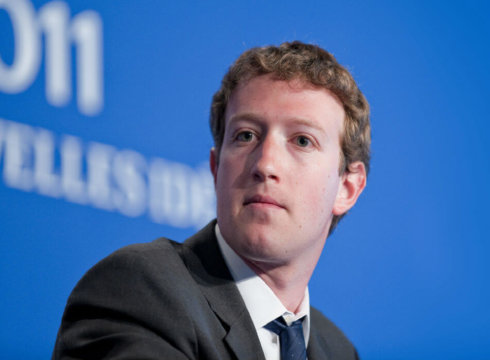SUMMARY
The Data Breach Issue Dampens Further On Facebook With Class Action Suit Over Facial Recognition Tool
Inc42 Daily Brief
Stay Ahead With Daily News & Analysis on India’s Tech & Startup Economy
As the Karnataka state government continued its trust over Facebook as an election partner, Facebook is also not leaving any stone unturned to support the authorities. Amidst various data breach and data security allegations globally, Facebook in a recent blog post announced to introduce a third party fact checking programme in India.
In a blog post, Facebook revealed that it has “partnered with BOOM, an independent digital journalism initiative, for a pilot programme that will first roll out in the state of Karnataka, the state where an election is to be held next month.”
“Boom, certified through the International Fact-Checking Network, non-partisan international fact-checking network at Poynter, will be able to review English language news stories flagged on Facebook, check facts and rate their accuracy.”
However, Karnataka has its native language Kannada, thus, how effective this step would be during the election campaigns is still unknown.
Fact Checking On Facebook
Facebook shared that it has learned that once a story is rated as false, it reduces its distribution by 80%, and thereby “improve the accuracy of information on Facebook and reduce misinformation.”
To debunk fake news, Facebook plans to show the story lower in News Feed when the fact-checker rates a story as false.
Also, with this, the “pages and domains that repeatedly share false news will also see their distribution reduced and their ability to monetise and advertise removed.” This helps curb the spread of financially motivated false news.
The post further said, “We also want to empower people to decide for themselves what to read, trust and share by providing the community with more information and control.”
For this, the company will show the articles written by third-party fact-checkers debunking a false news story in Related Articles immediately below the story in News Feed.
Also, it will send “people and Page Admins notifications if they try to share a story or have shared one in the past that’s been determined to be false”.
Government Analysing Facebook, Cambridge Analytica Responses
Reports have surfaced that the Indian government is “examining” the responses on the data breach issue.
Facebook CEO Mark Zuckerberg revealed that about 5.62 Lakh people in India were “potentially affected” by this global data leak crisis. It claimed that 335 people in India were directly affected by an app installation, another 562,120 people were potentially affected as friends of those users.
The Indian government had sent letters to both Facebook and Cambridge Analytica seeking details of how the breach was perpetrated by British firm Cambridge Analytica and what measures were left out on the Facebook’s end.
Cambridge Analytica had informed the government last week that it has not used any personal data of Indian users mined by Cambridge researcher Aleksandr Kogan from social network Facebook.
Facebook: The Ongoing Global Controversies And Amendments In Company Policies
Also, at the same time, a US federal judge in California has ruled that “Facebook will have to face a class action suit over allegations it violated users’ privacy by using a facial recognition tool on their photos without their explicit consent.”
A Facebook spokeswoman told AFP the company was reviewing the decision, adding: “We continue to believe the case has no merit and will defend ourselves vigorously”.
For the case, Facebook has been contending that it has been “very open about the tool since its inception and allows users to turn it off and prevent themselves from being suggested in photo tags”.
Also, after the revelation that Facebook stores data of people while they are not using Facebook, the company has also now explained its point of view.
In a blog post, the company explained that “many websites and apps use Facebook services to make their content and ads more engaging and relevant. These services include: Social plugins, such as our Like and Share buttons; Facebook Login; Facebook Analytics and, Facebook ads and measurement tools.”
The post explained that when a user visits a site or app that uses its services, it receives information even if the user is logged out or doesn’t have a Facebook account. “This is because other apps and sites don’t know who is using Facebook,” the post added.
The post also explained how it uses the data received. It said, “There are three main ways in which Facebook uses the information we get from other websites and apps: providing our services to these sites or apps; improving safety and security on Facebook; and enhancing our own products and services.”
After the co-founder of Whatsapp, Brian Acton tweeted #deleteFacebook, the campaign is flaring up the social media with the likes of Elon Musk and Apple co-founder, Steve Wozniak joining the campaign.
Facebook has been widely criticised for the lack of individual’s privacy and the company has been trying to save its head by introducing measures to address issues such as fake news to address its data privacy issues.
Note: We at Inc42 take our ethics very seriously. More information about it can be found here.


